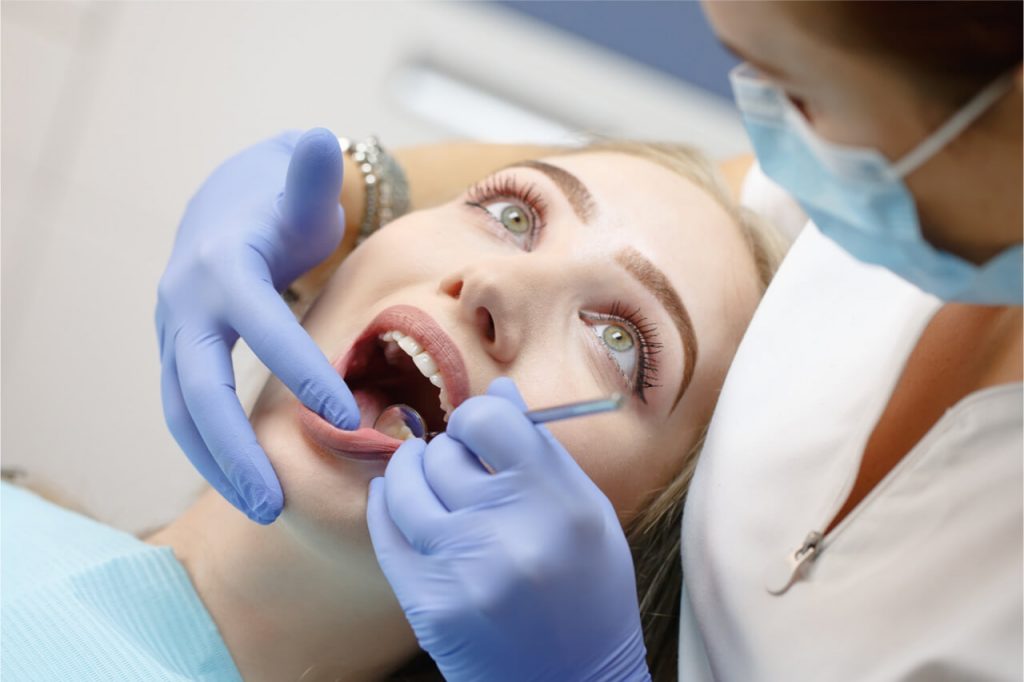A wisdom tooth can cause pain and discomfort over time. If it’s left untreated, a lot of complications could happen. So let’s say that you’ve actually gone to the dentist to have it removed, note that bleeding after wisdom teeth removal might occur. The bleeding in the extraction site could last for 2 days but it should stop or at least lessen on the third day. Go to this link: ADCDubbodentist.com.au to learn how to care for gums after wisdom tooth removal.
Bleeding After Wisdom Teeth Removal
 Once you finally had your wisdom tooth removed, expect a certain amount of bleeding for about two days. Aside from bleeding, oozing and redness of saliva might also follow for about three to five days. Don’t panic as this is very normal and it happens to everyone. However, if the bleeding is still severe four days after the tooth was extracted, call your dentist again.
Once you finally had your wisdom tooth removed, expect a certain amount of bleeding for about two days. Aside from bleeding, oozing and redness of saliva might also follow for about three to five days. Don’t panic as this is very normal and it happens to everyone. However, if the bleeding is still severe four days after the tooth was extracted, call your dentist again.
The bleeding can be managed by rinsing the mouth regularly and changing the gauze according to schedule. Your dentist will most likely give you aftercare instructions so be sure to follow them.
Swelling
It’s also normal to swell after wisdom teeth removal. Your cheeks, face, mouth, and eyes will look swollen for a couple of days. Yet, it should subside together with the bleeding. Swelling after an operation is our body’s natural reaction while it’s trying to self-recover.
If you are swelling right after the surgery, apply an ice pack to your jaw every after 15 minutes. This will help reduce the swelling and alleviate pain as well. The normal movements of your jaw should back in no time.
Pain
Pain during and after a dental operation is normal. But don’t worry because your dentist will prescribe you medication to manage the pain and discomfort. The intake will depend on the severity of the pain so be sure to strictly follow your prescription. Some of the medicines that will be given to you might make you feel groggy, inform your doctor if that is something that you are concerned about.
Food Intake
Almost all kinds of dental surgeries require patients to undergo a soft food diet for at least a week. This is to ensure that the treatment site will heal properly and accordingly. Eating hard foods might cause excessive bleeding and restrict your speedy recovery. You will also be asked to not drink using a straw and to drink plenty of water every day.
Aftercare Procedures
After the removal of your wisdom teeth, here are the things to follow:
- Take your medication according to your doctor’s advice.
- To manage the bleeding, gently bite the gauze pad placed on top of the extraction site. Check your gauze from time to time and change them before they even get filled with blood.
- Manage swelling by putting an ice pack to the jaw right after the procedure. Do this as often as possible until you feel more comfortable.
- Take plenty of rest. If possible, take the day off at work.
- Limit your physical activities. Do not exercise or lift heavy objects for about a week.
- Do not rinse your mouth harshly. Clean it in a gentle manner while trying to avoid putting pressure on the area where the wisdom tooth was removed.
 Keep your whole mouth and teeth clean by routinely doing your oral care regimen. Brush, floss, and rinse with products with fluoride.
Keep your whole mouth and teeth clean by routinely doing your oral care regimen. Brush, floss, and rinse with products with fluoride.- Saltwater rinse will be your companion for the next two days. Rinse your mouth with a mixture of water and a half teaspoon of salt regularly.
- Avoid smoking cigarettes as it might cause infection.
- Soft foods like soup, yogurt, and pudding will be your best buddies until you get better.
- Do not lie flat. Put a couple of pillows underneath your head to prevent excessive bleeding.
Other Complications
Aside from excessive bleeding following a wisdom teeth removal, other complications might also occur such as:
- Dry socket. It’s not uncommon for a dry socket to take place after tooth extraction. n fact, this is the most common complication that people face after the removal of their teeth.
- Restricted mouth opening. Due to the pain and discomfort that you are feeling, it will be quite hard for you to open your mouth fully.
- Numbness of the lips. This might be a rare scenario but numb lips do happen sometimes. However, it’s only temporary and it would not last for too long.




